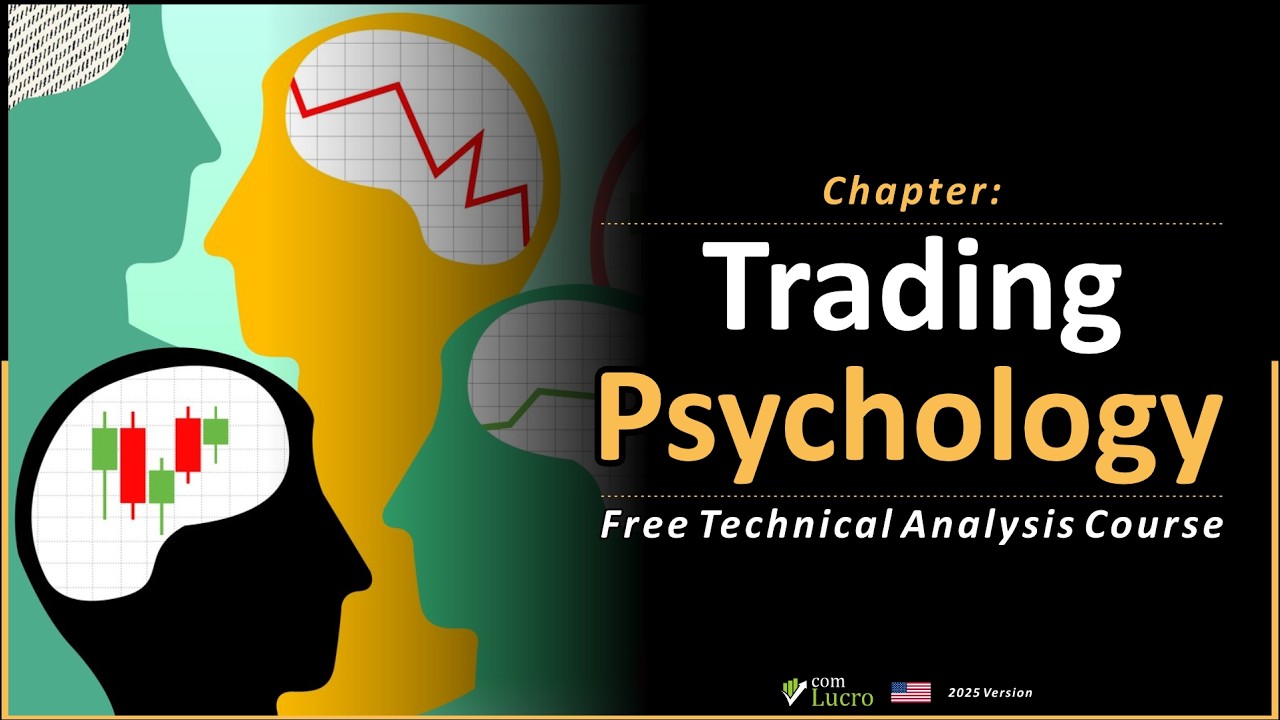Trading Psychology Explained: The Mindset of Winners | ComLucro
Trading Psychology Explained: The Mindset of Winners
Many traders focus heavily on technical analysis, indicators, and market strategies. However, success in trading is significantly influenced by your mindset. Emotional control, discipline, and rational decision-making under pressure are crucial elements that often determine long-term success or failure. This video delves deep into the psychological aspects of trading and how to develop the mindset of a winner.
Trading isn’t solely about reading charts or spotting patterns. It’s about managing your emotions, staying disciplined, and making rational decisions even when under pressure. According to the insights shared, many traders fail, not because they lack a good strategy, but because of fear, greed, hesitation, or overconfidence. Mastering the psychological aspects of trading separates consistent winners from those stuck in cycles of frustration and losses.
Key Mental Challenges in Trading
The video breaks down several key mental challenges that traders face, including emotional decision-making, self-discipline, and risk management. It explores proven techniques used by successful traders to build mental resilience, control their emotions, and develop a mindset that leads to consistency and long-term success. Whether you’re a beginner or a seasoned trader, strengthening your trading psychology is a game-changer.
The Importance of Mindset
As Tom Hougaard explains, the challenge in trading is not just technical; it’s psychological. He suggests that the vast majority of traders (around 90%) lose money over time, indicating that the odds are overwhelmingly against you, not from the market’s point of view, but from a personal one. According to Hougaard, the problem is not the market, but the trader’s mindset.
Traders need to adopt a different way of thinking, almost like becoming a Dr. Jekyll and Mr. Hyde, having one mindset when with family and friends and another when in the market. Frustration often comes from expecting something from technical methods that they simply cannot deliver. While technical methods can identify patterns in collective human behavior, the outcomes do not always correspond with the patterns on a trade-by-trade basis. As Mark Douglas points out, having a strategy is not enough without the mental skills to execute it properly. Trading requires a unique set of skills, like emotional control and discipline under pressure.
The Crucial Role of Discipline
Having the right mindset is important, but without discipline and strict rules, even the best traders can fall into destructive patterns. Many traders start with a well-defined plan but bend their own rules when emotions kick in, taking unnecessary risks or chasing trades that don’t fit their strategy. Phil Goedeker stresses the importance of having a strict set of rules and sticking to them. Breaking these rules, even just a couple of times a year, can wipe out weeks or months of trading profits.
Goedeker also highlights the unique challenge of self-accountability. Unlike a corporate job, traders have no one but themselves to enforce discipline. Failing to hold yourself accountable can lead to costly mistakes. Preserving capital and avoiding excessive risks are essential. Taking marginal trades or adding to losing positions can quickly pile up losses.
Developing a Trading Edge
Having a strategy with a high win rate isn’t enough to guarantee success. Trading is a probabilities game, and even the best setups won’t work every time. As Mark Douglas explains, successful traders develop a trading edge – a systematic approach that gives them a higher probability of success over the long run. Executing that edge consistently without hesitation, fear, or overconfidence is what separates professionals from those who struggle.
Risk Management is Key
Even the best strategy won’t work if you don’t control your risk properly. Al Brooks points out that starting small, staying disciplined, and managing losses are key to long-term survival. Many traders enter the market with unrealistic expectations and believe they can turn a small account into a fortune overnight. Charlie Burton highlights the mistake of expecting massive profits from an undercapitalized account. Realistic expectations are essential for building a sustainable trading career.
The Dangers of Emotional Trading
One of the biggest threats to trading success is emotional trading. Following other traders blindly instead of trusting your own system can destroy profitability. Tom Hougaard emphasizes that trading struggles are not technical but psychological. Many traders lose money, not because they lack knowledge, but because they fail to control their emotions. Warren Buffett stresses the importance of patience, noting that the best opportunities come to those who wait rather than those who trade constantly.
Balancing Trading with Life
Trading can be intense and emotionally draining. It’s important to balance trading with the rest of your life. Many traders struggle because they bring their personal emotions into their trades or let trading consume their entire life, leading to burnout. Hougaard discusses developing immunity to fear, a crucial skill for making rational decisions under pressure. Trading success is not just about knowledge and execution but also about building the right mindset to handle stress, uncertainty, and risk.
In conclusion, this chapter on Trading Psychology highlights one of the most critical aspects of trading. This video will give you a deeper understanding of the mental challenges traders face and the mindset that separates consistent winners from the inconsistent ones. Watch this video to master your trading psychology and trade with confidence, discipline, and consistency!
Don’t wait any longer! Watch the full video now and start your journey to becoming a more disciplined and successful trader. Learn proven techniques to control your emotions, manage risks effectively, and develop a winning mindset. Click here to watch now!


